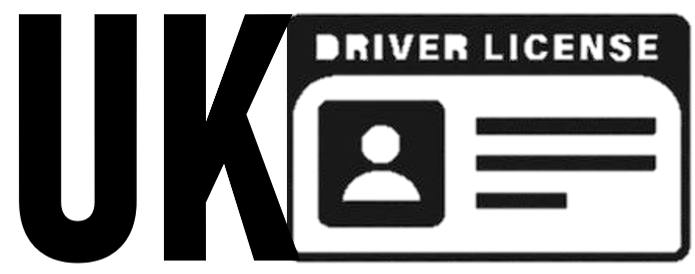Your Essential Guide: Navigating the Critical Checkpoints on Your Licenses
In today’s complex world, licenses are ubiquitous. From the moment you get behind the wheel of a car to running a multi-million-dollar business, or even using your favorite software, a license grants you the legal right to perform a specific activity or use a particular product. But simply possessing a license isn’t enough. The true challenge – and often overlooked responsibility – lies in understanding and diligently managing its “checkpoints.”
Neglecting these crucial checkpoints can lead to severe consequences, ranging from hefty fines and legal battles to operational shutdowns or even the complete revocation of your privileges. This comprehensive guide will walk you through the essential aspects you need to regularly review for any license you hold, ensuring you remain compliant, avoid pitfalls, and maintain your peace of mind.
Why License Compliance Isn’t Optional
Before diving into the specifics, let’s briefly underscore why proactive license management is non-negotiable. It’s not merely about adhering to bureaucratic rules; it’s about protecting yourself, your business, and your future. Non-compliance can result in:
- Legal Penalties: Fines, injunctions, and even criminal charges in some cases.
- Operational Disruptions: Business closures, service interruptions, or inability to perform licensed activities.
- Financial Losses: Loss of revenue, increased legal costs, and potential for compensatory damages.
- Reputational Damage: Loss of trust from customers, partners, and the public.
- Revocation of Privileges: Losing the very right to operate or perform a specific function.
Understanding these risks highlights the importance of mastering the checkpoints on your licenses.
The Critical Checkpoints You Must Master
Whether it’s a driver’s license, a professional certification, a business operating permit, or a piece of software, every license comes with specific conditions and requirements. Here are the key checkpoints you absolutely need to monitor:
1. Validity and Expiration Date
This is arguably the most fundamental checkpoint. Your license is only as good as its expiration date. Operating with an expired license is akin to not having one at all and often carries the same penalties.
- Check: When does your license officially expire? Is it still active?
- Action: Mark renewal dates prominently in your calendar. Understand the renewal process and typical lead times required. Some licenses have grace periods, but it’s unwise to rely on them.
Table 1: Common License Types and Their Typical Renewal Frequencies
| License Type | Examples | Common Renewal Frequency | Consequences of Expiration |
|---|---|---|---|
| Individual Licenses | Driver’s License, Passport, Professional Certifications (e.g., CPA, Medical, Bar) | 1-10 years (varies widely) | Fines, inability to practice, legal charges, restricted travel |
| Business Licenses | General Business License, Sales Tax Permit, Health Permit, Building Permits | Annually, Bi-annually, Project-specific | Business closure, fines, inability to operate, revoked permits |
| Software Licenses | OS, desktop applications, cloud services | Annually, Per-user, Perpetual (with maintenance) | Loss of functionality, security risks, legal action from vendor |
| Specialized Permits | Environmental Permits, Construction Permits, Liquor Licenses | Annually, Project-specific, Multi-year | Heavy fines, project halts, business closure, public safety risks |
2. Scope and Restrictions
Every license comes with boundaries. Understanding what your license permits you to do – and, crucially, what it does not – is vital for staying within legal limits.
- Check: What specific activities, locations, or types of work does your license authorize? Are there any explicit prohibitions or limitations?
- Action: Read the fine print. For a driver’s license, this means understanding vehicle classifications (e.g., motorcycles vs. commercial trucks). For a business license, it involves knowing permitted operating hours, zoning restrictions, or the specific services you’re allowed to offer. Software licenses often define the number of users, devices, or specific features you can access. Operating outside these defined parameters can lead to fines or license revocation.
3. Required Conditions and Ongoing Obligations
Many licenses aren’t just a one-time grant; they come with continuous obligations that you must fulfill to maintain validity.
- Check: Are there any ongoing training requirements, continuous professional development (CPD) credits, regular reporting requirements, or standards you must uphold? Do you need to maintain specific insurance coverage or financial guarantees?
- Action: Create a checklist of all ongoing requirements. For professional licenses, this might involve tracking CE credits. For businesses, it could mean submitting quarterly tax reports, adhering to safety regulations, or passing annual inspections. Ignoring these can render your license invalid, even if it hasn’t technically “expired.”
Table 2: Examples of Ongoing Obligations by License Type
| License Type | Ongoing Obligations & Conditions |
|---|---|
| Individual Licenses | Continuous Education Units (CEUs), professional ethics adherence, medical exams |
| Business Licenses | Regular inspections (health, safety), financial reporting, tax compliance, insurance maintenance, minimum staffing requirements |
| Software Licenses | Adherence to End-User License Agreement (EULA), no reverse engineering, usage within defined user/device limits, regular security updates |
| Specialized Permits | Environmental monitoring, regular safety audits, adherence to building codes, public notification for certain activities |
4. Documentation and Record-Keeping
Having a license means proving you have one. Proper documentation is your first line of defense if your license is ever questioned.
- Check: Do you have readily accessible, up-to-date copies of your license and all associated permits, certifications, and compliance records? Are these stored securely, both physically and digitally?
- Action: Implement a robust record-keeping system. This includes the original license, renewal confirmations, proof of fulfilled obligations (e.g., CE certificates), and any correspondence with the licensing authority. For businesses, this might involve a centralized digital repository accessible to relevant personnel. Ensure compliance with data protection laws for personal information.
5. Transferability and Ownership
Who actually owns or can use the license? This is crucial, especially in the context of business changes or software usage.
- Check: Is your license tied to an individual, a specific business entity, or a location? Can it be transferred or sold? Under what conditions?
- Action: Understand the rules regarding changes in ownership or status. A personal driver’s license cannot be transferred. Many professional licenses are non-transferable. Business licenses might require reapplication upon a change of ownership or location. Software licenses are often non-transferable to other entities. Clarify these details to avoid issues during mergers, acquisitions, or even simple changes of address.
6. Updates and Amendments to Regulations
Laws and regulations are not static. What was compliant last year might not be today. Staying informed about changes is an ongoing responsibility.
- Check: Are you aware of any recent changes to the laws or regulations governing your license? Have there been any amendments to the licensing body’s rules?
- Action: Regularly check official government websites, industry association updates, and legal publications relevant to your license. Subscribe to newsletters from licensing authorities. Ignoring regulatory changes, even if you weren’t directly notified, is rarely an acceptable defense.
Practical Tips for Maintaining License Compliance
Managing multiple licenses can feel overwhelming, but a structured approach can simplify the process:
- Centralize Your Information: Keep a single, organized repository (digital or physical) for all your license documents, expiration dates, and renewal procedures.
- Set Up Reminders: Utilize calendar alerts, dedicated software, or even a simple spreadsheet with automated notifications for upcoming renewal dates and critical checkpoints.
- Regular Audits: Periodically (e.g., quarterly or annually) conduct a full review of all your licenses against the six checkpoints outlined above.
- Assign Responsibility (for businesses): Designate specific individuals or departments responsible for managing different categories of licenses.
- Stay Informed: Beyond official channels, join relevant professional associations or industry groups that often disseminate information about regulatory changes.
- Seek Professional Advice: When in doubt, consult with legal counsel, accountants, or specialized compliance consultants. Their expertise can save you significant time and potential headaches.
Frequently Asked Questions (FAQ)
Q1: Why are licenses so important? A1: Licenses are crucial because they ensure that individuals and businesses meet specific standards, qualifications, or legal requirements to perform certain activities. They protect public safety, ensure fair competition, and provide regulatory oversight, preventing unqualified or illicit operations.
Q2: What happens if my license expires? A2: The consequences of an expired license vary widely depending on the type. You could face fines, temporary suspension of your ability to operate or practice, or even legal charges. For businesses, it can lead to forced closure or significant penalties. In some cases, you might have to reapply for the license from scratch, which can be more complex and costly than a simple renewal.
Q3: Can I transfer my license to someone else or a new business? A3: Generally, individual licenses (like driver’s or professional licenses) are non-transferable. Business licenses might be transferable under specific conditions, often requiring approval from the licensing authority and fees. It’s vital to check the specific regulations governing your license before assuming transferability, as an unauthorized transfer could invalidate the license.
Q4: How often should I check my licenses for compliance? A4: While renewal dates are fixed, it’s advisable to conduct a comprehensive review of all your licenses at least annually. For businesses, quarterly reviews or whenever there are significant operational changes (e.g., new services, locations, or personnel) are recommended to ensure continuous compliance with all checkpoints.
Q5: Is there a difference between a license and a permit? A5: While often used interchangeably, there’s a subtle distinction. A license typically grants you the overarching authority or qualification to perform an activity (e.g., a driver’s license, a medical license). A permit usually grants specific, temporary permission for a particular action or project within the scope of a broader license (e.g., a building permit for a specific construction project, a special event permit). Both require compliance with conditions.
Conclusion
Effective license management is a cornerstone of responsible operation, whether you’re an individual or a large enterprise. By diligently monitoring the six critical checkpoints – validity, scope, ongoing obligations, documentation, transferability, and regulatory updates – you empower yourself to navigate the complexities of compliance with confidence. Don’t wait for an audit or a penalty to prompt action. Take control of your licenses today, set up your systems, and ensure you’re always operating within the legal and ethical boundaries. Your proactive approach will undoubtedly save you time, money, and considerable stress in the long run.

